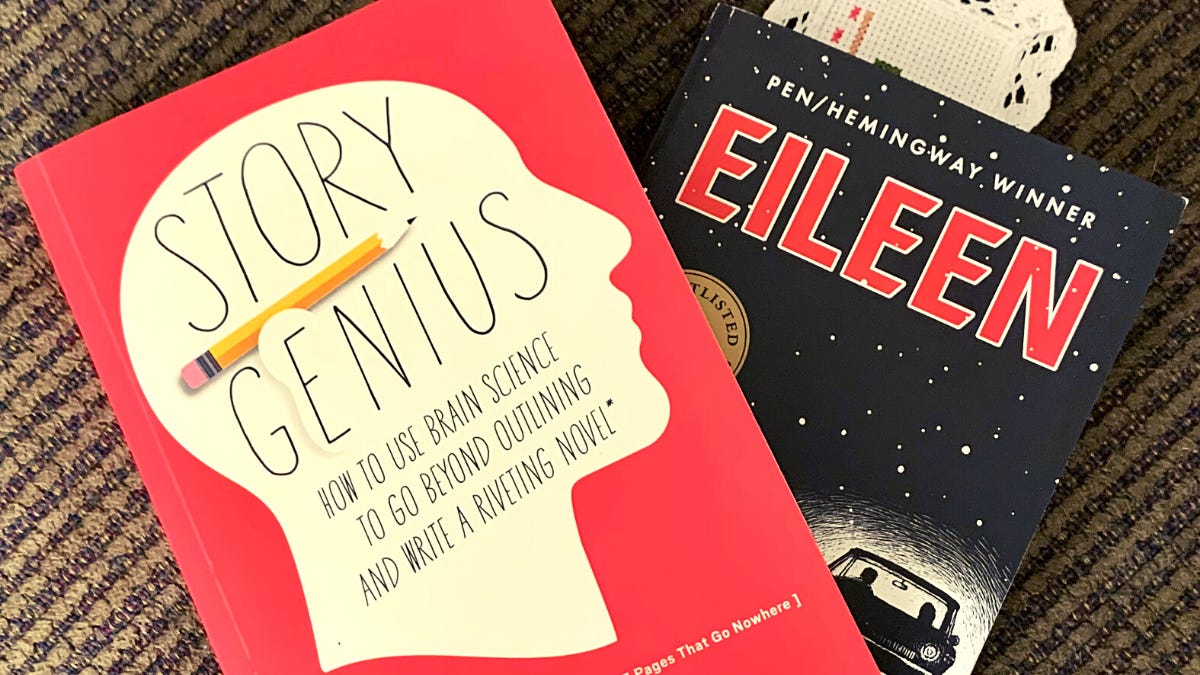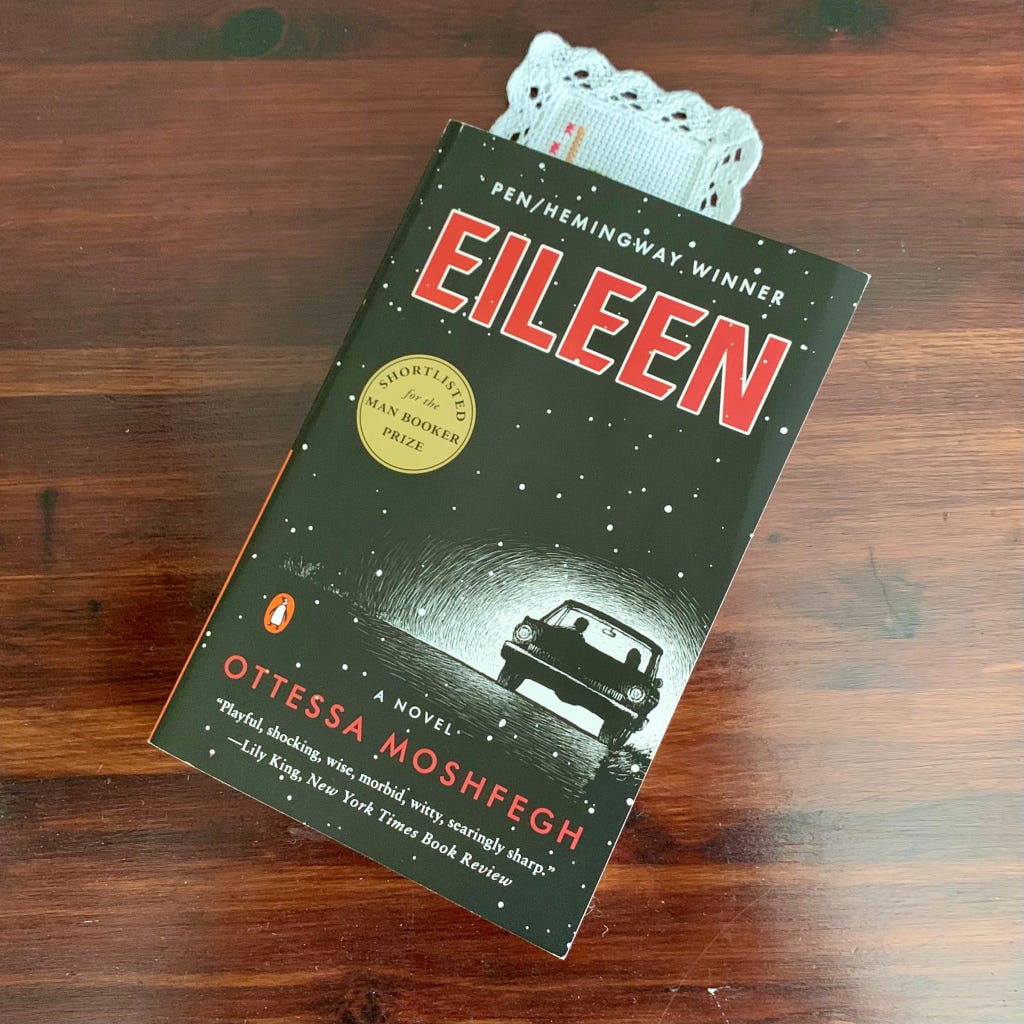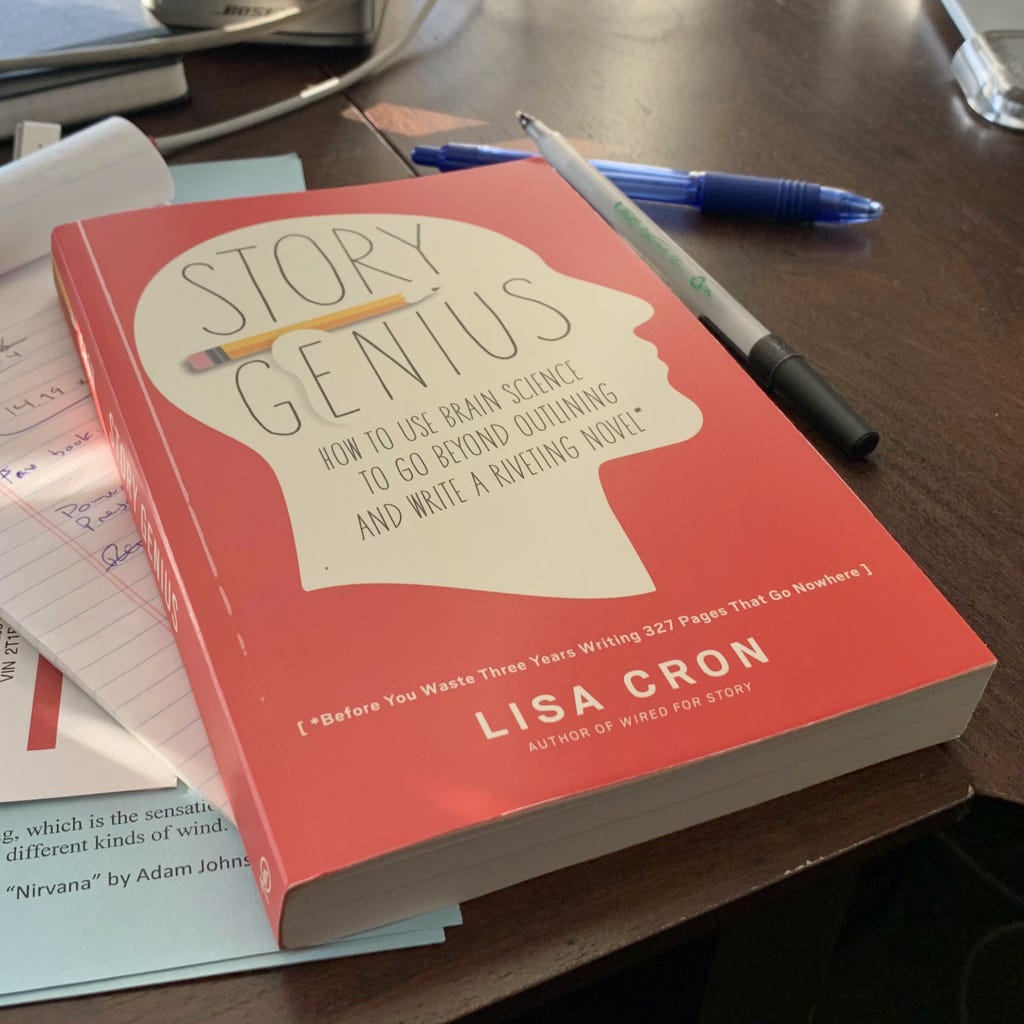
Reading, Revising, Researching: Three Rs for a Brave New World
I like to think I've learned a thing or two while focusing on these three new Rs. I'm hopeful we can learn from each other.
Forget 'rithmetic. This month has been one of reading, revising, and researching, and I like to think I've learned a thing or two while focusing on these new three Rs.
And today? Well, I'd like to share what I've learned with you.
Reading
Writers must read. We hear this all the time, and with good reason. How are you to familiarize yourself with the genre in which you (want to) write if you're not even reading that genre? How will you make the most of all your acquired craft knowledge if you're using it only to shape your current manuscript, instead of also analyzing published fiction?
A friend recently sent me Eileen by Ottessa Moshfegh. Eileen is the story of, you guessed it, Eileen, a peculiar woman whose miserable, friendless world is turned upside down when a new coworker arrives at the youth prison where she works.
Two things struck me as I read Eileen. First, it served as a reminder of how impactful the first-person point of view can be; it invites readers to share an intimate relationship with the protagonist. As a device, this can be highly effective, particularly if the protagonist has a strong, standout voice.
Second, Eileen is quite slow to develop. It isn't until nearly one hundred pages in that this new coworker and soon-to-be friend arrives to upend Eileen's plan of escaping her miserable life in X-ville (literally what it's called in the book).
This, to me, felt like it should have been a chapter three event (maybe chapter five, if I'm generous), but there I was, one hundred pages in, finally seeing this great and mysterious Rebecca on the page for the first time.
Writers are fortunate to preside over happy accidents at times, but in reading Eileen, I suddenly found myself at the center of one such accident. Remember Scambait, the novel I've been working on about the corporate layabout whose long-deceased father reaches out to him via his spam folder? My most recent struggles with that manuscript have been, wouldn't you know it, 1) a lack of certainty about whether it needed to be rewritten in the first-person and 2) whether it was too slow to develop.
Happy accidents. Such is life.
Revising
To say it requires a great deal of work to change one's manuscript from third-person (he, in this case) to first person (I) is an understatement. I've had to do this before (When the Stars Conspire, for those of you who have read that manuscript), but I've never juggled this particular task while also weighed down by concern over how to proceed with an acceleration of the plot's pacing.
Thanks, Eileen.
But, after collecting overwhelmingly positive feedback on the current version of Scambait, my original goal was to have it ready to query this spring! Knowing this, perhaps you can understand my reluctance to embrace this new vision for the manuscript.
This Saturday morning, however, I convinced myself I had to at least try.
And so—deep breath—I did.
It went well, mostly, but something was missing. I needed a signpost against which I could measure the pacing issues I sought to address.
Enter Story Genius by Lisa Cron.
I've read Lisa's Wired for Story and have interviewed her as part of an episode on the Writescast Network, but I never got around to reading Story Genius. Everyone I know who has read it, however, has raved about it, so, trusting their judgment (and Lisa's), I've elected to fall back on both reading and research to help me through revisions.
Research
This brings me to the third of our three new Rs. Reading books like Story Genius and Eileen will or have already certainly helped me with my revisions, but research is so much more than reading.
For example, I recently came to realize that the original research I did into the scambaiting community wasn't going to cut it, not if I truly want Scambait to shine. The problem? There's not a great deal of authoritative work written about scambaiting, and even if there were, the landscape is constantly shifting.
Thank goodness, then, for YouTube.
If you're unfamiliar, scambaiting is the act of calling back those phony tech support (or other) scammers who are always ringing you from fake U.S. numbers. Once a scambaiter has a scammer on the phone (or, in the case of Scambait's protagonist, in his email inbox), they then try to keep them on the phone for as long as possible in order to keep them from scamming people who might actually fall for their schemes.
Scambaiting experts like Pierogi of the Scammer Payback YouTube channel take their scambaiting a step further by, as in the video above, finding the scammer's list of victims on their computer so he can call those victims to tell them what to watch out for in the future.
Now, the protagonist in Scambait is nowhere near as competent as scambaiters like Pierogi, but that doesn't mean the hours I spent watching scambaiting videos this weekend were wasted. On the contrary, getting more familiar with the work of people like Pierogi, Kitboga, and Jim Browning has helped me better understand my protagonist's world view.
This, along with the additional details I've gleaned from expert scambaiters (as opposed to their lower-stakes compatriots on the r/scambait subreddit) have better equipped me to flesh out some of the protagonist's antagonizing forces.
And here's the bonus conclusion at which I arrived late last night: if I'd done all of this research before having written a word, I'm not sure I'd have wound up with a story that's as engaging as beta readers seem to have found Scambait thus far.
Why? The research would have gotten in the way.
Reading, Revising, Researching: An Ongoing Process
Often, I find writers who do extremely detailed research before ever writing a word tend to focus overmuch on that research in the presentation of their story, which is to say the research actually gets in the way of the story itself. In other words, these writers have spent so much time studying a given subject that they can't imagine wedging it unnecessarily into the events of the novel as they unfold.
But, by making research an ongoing process—one that's part of the reading and revising stages as well as the initial drafting stage—we ensure we aren't tripping ourselves up or letting ourselves get so mired in research that we never write a word of the actual book.
At some point, you just have to get started. At some point, you have to take a risk. But, at all points, you must accept that for your work to be the best it can be, you must read. You must revise. And you must, yes, research.
That's what I'll be doing for the foreseeable future ,anyway. I've got Story Genius to read, Scambait to revise, and further relevant research to conduct.
This manuscript may not be ready to query on the exact timeline I originally had in mind, but I'll be damned if I won't be caught reading, revising, and researching my way to getting it back on track as soon as I can.








